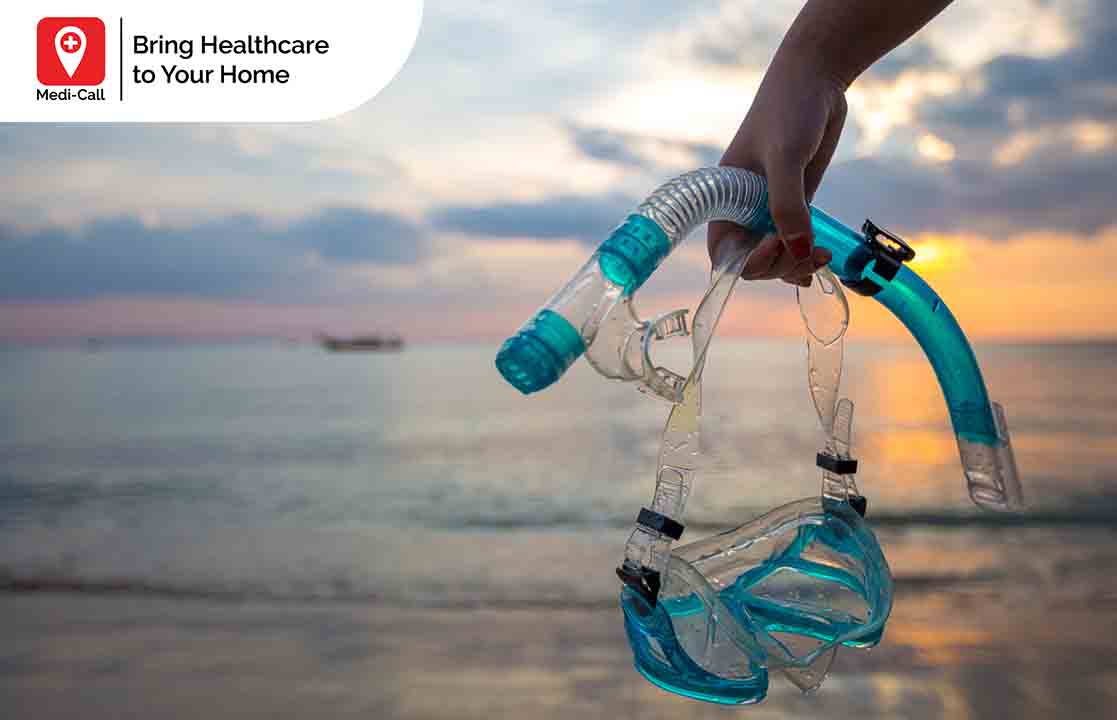Learn Treatment of Diving Decompression Sickness While Diving in Bali
Treatment of diving decompression sickness is generally treated by having hyperbaric oxygen therapy, but it has to be adjusted to the severity needed.
The word decompression may sound familiar for divers. However, it is different with people who might not know what decompression is. Decompression is a life-threatening disease or condition due to the body experiencing changes in pressure, either water or air, which occurs too fast. This decompression always lurks at any time if the divers aren’t being careful when rising to the surface. When the divers are about to dive, the divers will experience decompression if they didn’t do the process of returning to the surface in stages properly. For that matter, there are things that divers need to know for treatment of diving decompression sickness.

Decompression Sickness
Decompression is a disorder that is usually experienced by divers with signs such as feeling dizzy, weak, and hard to breathe. This condition arises when the body feels changes in water or air pressure that is too fast. For that reason, nitrogen in the blood forms bubbles that clog blood vessels and organ tissues. This happens when a collection of symptoms due to a decrease in pressure that occurs after a greater pressure increase first. The deeper the dive, the more nitrogen is dissolved in the diver’s body tissue. High levels of nitrogen in the body depends on the depth and duration of the diver. Therefore, the deeper and longer the dive, the higher the level of nitrogen that dissolves in the body. Decompression not only risks divers, but also compressed air workers, astronauts and pilots. Hence, the treatment of diving decompression sickness below is not only useful for divers only.
There are several factors that increase the risk of decompression, including:
- Dehydration
- Direct flight right after diving
- Obesity
- Adult above 30 years old
- People who have heart disease.
Causes and Symptoms of Diving Decompression Sickness
Decompression is the impact of changes whether water or air that occurs rapidly. For example when the divers dive, decompression will occur if the process of returning to the surface is not carried out in stages, or without safety approval stops (stops a few minutes at a certain depth) in accordance with the provisions of diving safety. Basically, the body needs time to improve with existing changes. If the changes occur rapidly, the nitrogen contained in the blood will form bubbles that can clog blood vessels and organ tissues. Then, the blocked blood vessels or organ tissues can cause pain and the divers will experience other symptoms.
Symptoms of decompression can be different for each person. In other words, different divers might be experiencing different symptoms, depending on the location of the blockage.
Common symptoms of decompression include:
- joints pain;
- feeling dizzy;
- feeling weak;
- hard to breathe;
- rash;
- there are parts of the body that feel pins and needles.
Once these symptoms hits the diver, there is treatment of diving decompression sickness that divers need to know.

Treatment of Diving Decompression Sickness
For emergency treatment of diving decompression sickness on the spot, there are steps that the sufferer need to follow:
- The first step to do is laying down the sufferers in a supine position.
- Then, warm up sufferers’ body with a blanket if there is a decrease in body temperature.
- If possible, give the patient a high flow of oxygen through the mask.
Hyperbaric oxygen therapy is a method used as treatment of diving decompression sickness to cure decompression. This therapy uses a tube containing a special chamber that functions to simulate pressure. The pressure in the tube prevents nitrogen from forming bubbles, and turns the bubble back into a blood-soluble gas. However, consideration for hyperbaric oxygen therapy depends on the severity of the symptoms. In other words, divers should consult a doctor first before deciding to use this as treatment of diving decompression sickness.
Basically, the body needs time to adapt to change in pressure around it. If the pressure changes too quickly, the nitrogen contained in the blood will form bubbles that can clog blood vessels and organ tissue. Blocked blood vessels or organ tissue can cause pain and other symptoms if not treated properly.
If the diver’s condition is at high risk of causing decompression such as heart disease and asthma, do not dive before consulting a doctor, because there are several conditions that the divers are not allowed to dive. You can consult a doctor through Medi-Call Application or you can simply contact Medi-Call hotline.
How to Prevent Diving Decompression Sickness
Decompression is a preventable condition. For divers, some of the efforts below can prevent the emergence of decompression:
- Obey the safety rules and instructions of the dive instructor.
- Consult with the instructor regarding the depth and duration of diving.
- If necessary, use a dive computer or special tool that can help divers measure the depth to the remaining duration of the dive.
- Apply a safety stop or stop a few minutes at a certain depth (generally 4-5 meters), before returning to the surface.
- Avoid flying or traveling to high places, at least 24 hours after diving.
- Someone who is recovering from decompression or already had treatment of diving decompression sickness, it is recommended not to do the dives first, at least for 2 weeks.
- Avoid consuming alcohol before and after diving.
- Avoid saunas or take a hot shower after diving.
- Make sure enough body fluids or not dehydration.
In addition to good physical condition, good swimming skills are also very necessary in forced conditions when diving. The most important thing is to know your personal abilities, because divers should not force themselves to dive if they are unable to swim.








